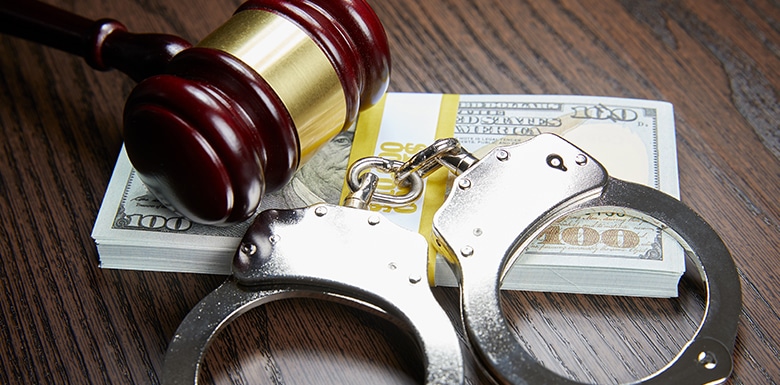Getting a DWI is never cheap, and most people don’t realize just how expensive it can be until it’s too late. From fines and fees to hidden costs like increased insurance premiums, the price tag of a DWI can climb faster than you’d expect. In this article titled “A Beginner’s Guide to Understanding DWI Cost Offenses,” we’ll break down everything you need to know about what a DWI actually costs—financially, emotionally, and professionally. It’s not just about the number on a court document—it’s about the ripple effect that follows you for years.
Whether you’re trying to plan for your defense, support a loved one, or simply want to know the risks, this guide will give you a clear, real-world look at what DWI cost offenses truly involve. With storytelling, analysis, and a no-nonsense tone, we’re diving into one of the most misunderstood parts of the justice system. Understanding the full scope of these costs can make all the difference when you’re weighing your legal and personal options.

What Is a DWI, and Why Is It So Costly?
The Legal and Financial Definition
A DWI (Driving While Intoxicated) charge is issued when someone operates a vehicle while impaired by alcohol or drugs. While the legal definitions vary by state, the financial consequences follow a predictable—and painful—pattern. The DWI cost doesn’t just come from the ticket or court fines. It hits you in layers: legal fees, bail, impound fees, license reinstatement, and higher insurance premiums.
And that’s just the direct damage. Many people also lose wages, professional opportunities, and time—all of which add up.
A typical first-offense DWI can cost between $8,000 and $15,000. Let’s break it down so you can see where every dollar goes.
Real-Life Example: Mike’s First DWI
Mike, a 29-year-old engineer in Austin, had one too many drinks at a friend’s birthday party. Feeling “okay to drive,” he headed home—only to get pulled over less than two miles away. After failing a breathalyzer, he was arrested and charged with a DWI.
By the time his case was resolved, Mike had spent:
- $1,500 on a criminal defense lawyer
- $2,000 in court fines and surcharges
- $1,200 for a mandatory alcohol education class
- $800 for ignition interlock installation and maintenance
- $2,400 in lost wages due to court dates and license suspension
- $3,500 in increased insurance premiums over the next three years
Mike’s total DWI cost? Just over $11,000. And that’s for a first offense with no accident or injuries involved.
Court Costs and Legal Fees
The Most Obvious—but Not the Only—Expense
Let’s start with what most people expect to pay after a DWI: the court costs and legal representation. Here’s what that usually includes:
- Attorney Fees: Depending on your area and the complexity of your case, this can range from $1,000 to $10,000. A private attorney will cost more, but they can often reduce your penalties or get charges dropped.
- Court Fines: Courts typically impose fines of $500 to $2,500 depending on your state’s guidelines, whether it’s a first offense, and your BAC level.
- Surcharges: Some states (like New York or Texas prior to 2019) add annual surcharges just to keep your license. These can add up to $3,000 over three years.
So if you’re budgeting for a DWI, you can already see how the DWI cost becomes a major financial burden—even before considering the hidden expenses.

License Suspension and Reinstatement
The Costs of Losing—and Regaining—Your Driving Privileges
After a DWI, most people face a license suspension, sometimes even before their court hearing. Here’s how the DWI cost increases during and after the suspension:
- License Reinstatement Fees: Typically range from $100 to $500
- Administrative Hearings (DMV): You may need to request a hearing just to keep your license temporarily. This can involve attorney fees or time off work
- Temporary or Restricted Licenses: States may charge additional fees to issue a limited license so you can drive to work or school
Not being able to drive is expensive in itself. Between missed work and rideshare costs, the DWI cost grows with every delay in getting your license back.
Ignition Interlock Device (IID)
A Small Device with a Big Price Tag
In many states, even a first-time DWI conviction requires you to install an ignition interlock device. This is a breathalyzer that prevents your car from starting if alcohol is detected.
Costs include:
- Installation: $70–$150
- Monthly Monitoring: $60–$100 per month
- Calibration and Maintenance: Often required every 30–60 days
If you’re required to keep the device for 12 months, you’re looking at an additional $1,000–$1,200 minimum added to your DWI cost.
Insurance Rate Increases
The Long-Term Hit to Your Wallet
This is where the DWI cost can get really brutal. After a conviction, your insurance provider will likely:
- Raise your premium by 80–300%
- Reclassify you as a high-risk driver
- Require you to file an SR-22 or FR-44 form (in some states), which also has associated fees
Even if you find another insurer, your rates could stay inflated for three to five years. Over time, that could easily add $3,000 to $10,000 to your total DWI cost.
Employment Consequences
How a DWI Can Affect Your Job
Most people think the financial hit stops at legal and insurance costs. But for many, a DWI offense leads to professional setbacks:
- Missed Work: Court dates, community service, and license suspension can all cost you valuable hours—if not your job entirely
- Loss of Professional Licenses: Teachers, nurses, commercial drivers, and others risk losing credentials
- Background Checks: Future employers may disqualify you based on a criminal record, especially for positions of trust
So when calculating DWI cost offenses, don’t forget to consider lost income and diminished earning potential.
Alternative Sentencing and Diversion Programs
Options That Can Save You Money—But Not Always
Some first-time offenders qualify for pretrial diversion or alternative sentencing, which may involve:
- Completing alcohol education classes
- Community service
- Avoiding further legal trouble for a set period

These programs often reduce or eliminate jail time and fines—but they’re not free. You’ll still pay for classes, monitoring, and administrative costs. However, they can lower your long-term DWI cost by keeping the conviction off your record.
Additional Costs You Might Overlook
The Hidden Expenses Add Up Fast
There are also “soft costs” that most people don’t anticipate after aDWI arrest, such as:
- Towing and Vehicle Impound Fees: $100–$300+
- Bail Bonds: Even if bail is low, posting it often requires a non-refundable fee to a bondsman
- Travel Costs: If your license is suspended, you may rely on Uber, Lyft, buses, or help from others
- Therapy or Alcohol Counseling: Some judges mandate it as part of sentencing
- Childcare or Elderly Care: Court dates or jail time may require you to hire help
These “little” costs often catch people off guard, especially when combined with more obvious legal fees.
Real-Life Example: Sandra’s Second Offense
Sandra, a 45-year-old sales rep from Florida, got hersecond DWI offense after attending a work event. This time, the DWI cost skyrocketed.
She spent:
- $3,500 on a new lawyer
- $5,000 in fines and fees
- $1,800 on an ignition interlock for two years
- $6,000 in lost commissions
- $4,000 in inflated insurance premiums over three years
Total cost? Over $20,000, not including the emotional and professional toll. And this doesn’t even factor in the strain it put on her family and personal life.
Can You Reduce DWI Cost Offenses?
Sometimes—With the Right Help
Hiring an experienced DWI attorney early can make a massive difference in your case. A good lawyer might:
- Get charges reduced to reckless driving or obstruction
- Challenge the legality of the traffic stop
- Suppress the results of a flawed breath or blood test
- Help you qualify for diversion or probation instead of jail

While lawyers aren’t cheap, they can often save you thousands in long-term DWI costs by minimizing penalties or avoiding conviction altogether.
Long-Term Impact: Beyond the Courtroom
The Cost of Stigma and Reputation
A DWI doesn’t just cost money—it can cost trust. Employers, landlords, banks, and even dating partners may judge you based on that one conviction.
It can take years to rebuild your image, especially if your mugshot or case details are online. While this isn’t a “cost” you can measure in dollars, it still affects your quality of life in a big way.
So if you’re wondering whether the cost of a DWI is worth it, the answer is no. It never is.
Final Thoughts: A Beginner’s Guide to Understanding DWI Cost Offenses
Getting a DWI is a costly experience—financially, legally, and emotionally. As this guide on DWI cost offenses has shown, the price tag isn’t just what you pay at the courthouse. It follows you to your insurance renewals, your job interviews, and sometimes even into your relationships.
By understanding these costs upfront, you’re better equipped to protect yourself or someone you love. Whether it’s hiring the right lawyer, fighting for a lesser charge, or making sure this never happens again, knowledge is your best defense.
And if you’re reading this before ever getting behind the wheel intoxicated—pause and think. The cost of a ride-share is pennies compared to the thousands you could lose, and the years of regret that may follow.


